Are Chinese diplomats lacking in media sparring skills?
Chinese ambassador to France and wolf warrior diplomat Lu Shaye recently sparked a furor with his claim that post-Soviet countries have no effective status as sovereign nations, putting both French President Emmanuel Macron as well as Beijing in difficult positions. How can China repair the damage?
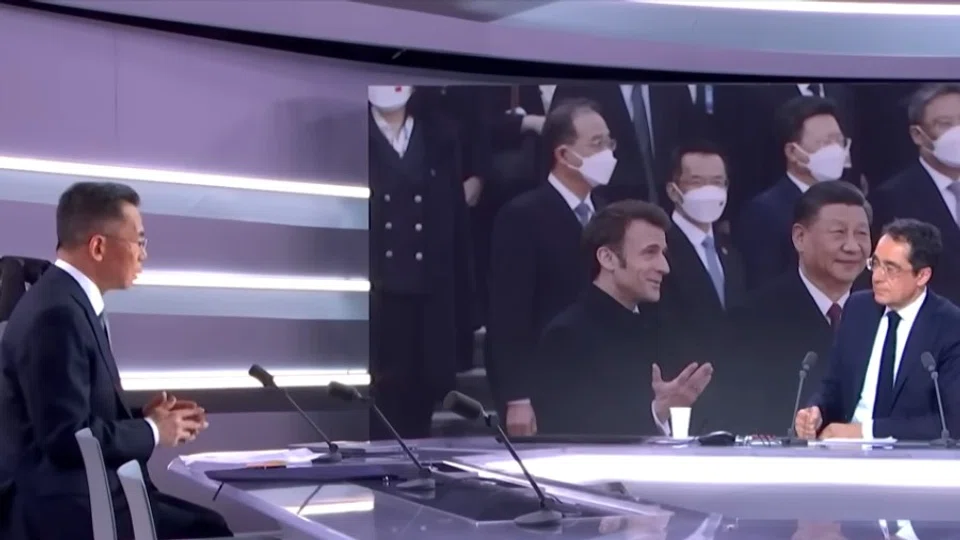
Chinese ambassador to France Lu Shaye, who is described as a "wolf warrior diplomat", has once again drawn unanimous backlash in Europe for his shocking comments.
China's role as mediator at risk
In an interview on French television aired on 21 April, when asked if Crimea belonged to Ukraine, Lu responded, "It depends on how you look at the problem."
Lu said historically Crimea was part of Russia and had been offered to Ukraine by former Soviet leader Nikita Khrushchev. Lu further claimed that countries that emerged after the fall of the Soviet Union "don't have effective status under international law because there is not an international agreement confirming their status as sovereign nations".
Lu's comments were similar to the justifications put forward by Russian President Vladimir Putin for his invasion of Ukraine, which immediately angered many European countries. Ukraine along with Latvia, Lithuania and Estonia - the three Baltic states that are also former Soviet republics - were the first to react. The French Ministry of Foreign Affairs also expressed shock at Lu's remarks and called on China to provide an explanation to ensure that this did not represent China's position.
Lu's remarks have raised doubts about China's ability to be an effective mediator, and have hindered Macron's diplomatic efforts to seek Beijing's help in mediating the conflict between Russia and Ukraine.
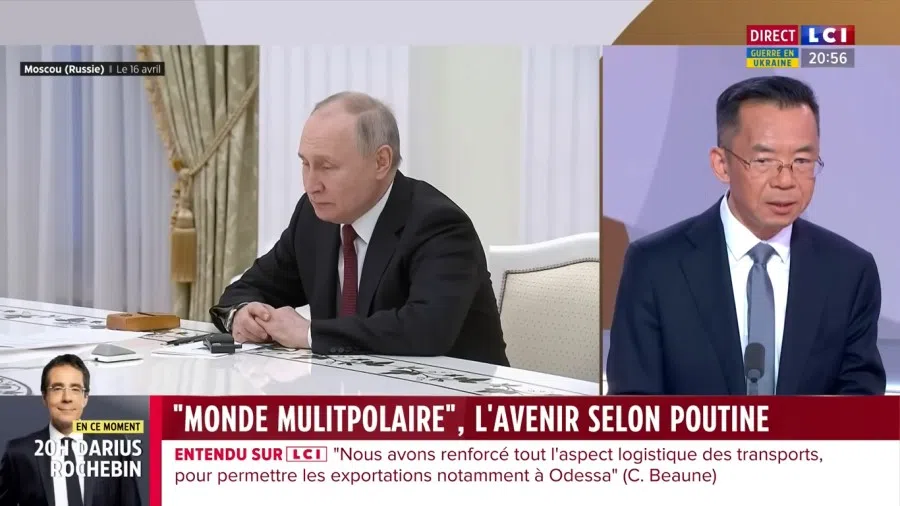
Some 80 European lawmakers wrote an open letter in Le Monde, calling for the French Minister of Foreign Affairs to declare Lu persona non grata, which is basically putting pressure on France to expel him.
Lu's remarks have also put French President Emmanuel Macron, who recently came under fire in the Western world due to his friendliness with China, in a tough position. After his recent visit to China, Macron emphasised the need for Europe to have "strategic autonomy", declaring that Europe should avoid being dragged into the conflict between the US and China over Taiwan. His comments immediately drew criticism in Europe.
Recent reports suggest that Macron has instructed his diplomatic adviser Emmanuel Bonne to work with Chinese Communist Party Politburo member and Office of the Central Commissin for Foreign Affairs director Wang Yi to develop a framework that could serve as a basis for negotiations between Russia and Ukraine. However, Lu's remarks have raised doubts about China's ability to be an effective mediator, and have hindered Macron's diplomatic efforts to seek Beijing's help in mediating the conflict between Russia and Ukraine.
Contradictory to official stance
Beijing is even more rattled. Lu's remarks have put China in a passive position, even as it has been trying to appear neutral in the Russia-Ukraine conflict.
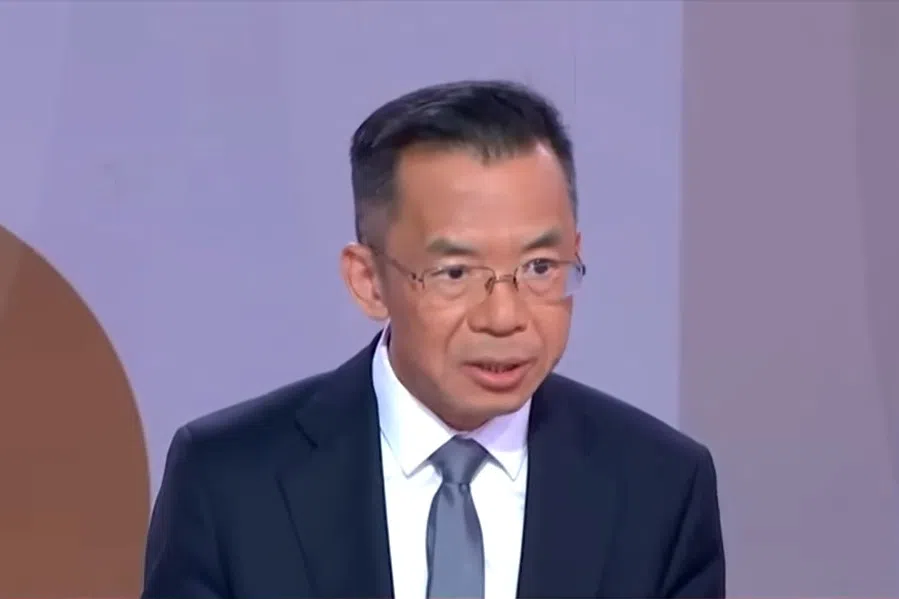
It is normal for Western media hosts to ask challenging and pointed questions in interviews with politicians. Lu's interviewer was veteran media personality Darius Rochebin, who was clearly prepared. The interview was full of intense exchanges and debates, even bordering on provocation. It was a true test for Lu to respond to these questions and assert the position of his country without being submissive or disrespectful.
To be fair, taking foreign media interviews without restrictions and addressing sensitive issues is already a big step forward for Chinese officials, who have always been cautious and conservative. However, Lu's responses to some key issues were indeed unsatisfactory - not only did he scold the host at various points during the interview, but he also failed to clarify China's position on key issues, and even made inappropriate remarks.
On the first anniversary of the outbreak of the Russia-Ukraine war, Beijing released "China's Position on the Political Settlement of the Ukraine Crisis", with the first point stressing the need to respect the sovereignty of all countries. Although the Ukraine issue is not in the purview of the Chinese ambassador to France, it is befuddling that an ambassador representing China in a major European country like France has made statements on Russia and Ukraine that clearly contradict China's official policy stance and even implicate several former Soviet states.
Some razor-sharp observers would also start to wonder: are these comments solely Lu's opinions? To what extent do these statements reflect a position that Beijing prefers to agree with in private?
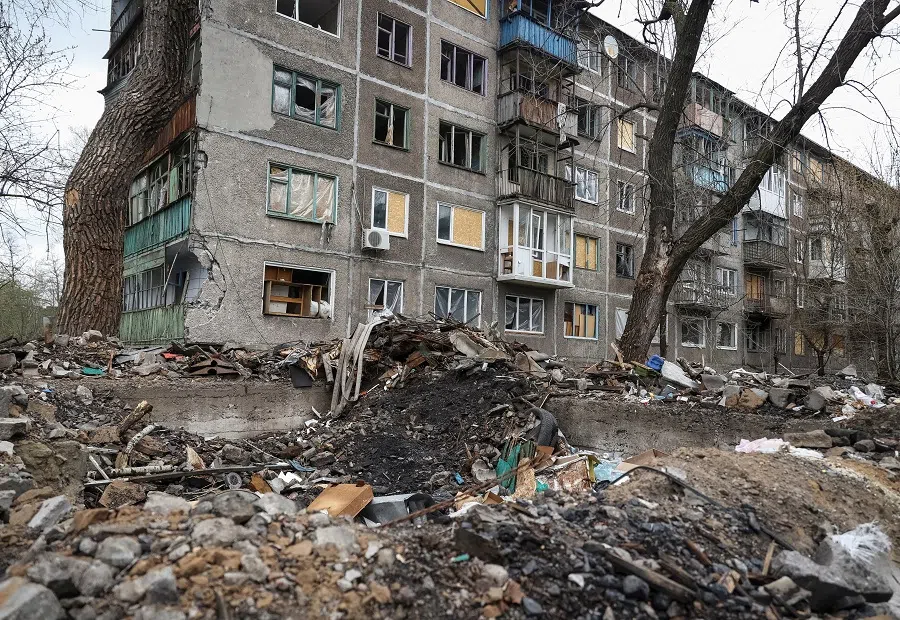
In fact, this does not only involve the former Soviet states - if "historically you'd have belonged to me" could be used as a justification to deny the sovereignty of UN members, it would send a shiver down the spines of many countries in the world.
Some razor-sharp observers would also start to wonder: are these comments solely Lu's opinions? To what extent do these statements reflect a position that Beijing prefers to agree with in private? After all, it is difficult to distinguish between personal opinion and the nation's position when the ambassador makes public speeches.
Courage to fight with the skills to do so
After the incident triggered a furore, the Chinese foreign ministry had to step in to put out the fire. Chinese foreign ministry spokesperson Mao Ning clarified on 24 April: "The Soviet Union was a federal state and as a whole was one subject of international law in international relations. This does not negate the republics' status as sovereign countries after the Soviet Union's dissolution."
Based on the transcript on the Chinese foreign ministry website, Mao twice stressed that her comments represent "the official position of the Chinese government", implying that Lu's remarks do not represent the Chinese government's position.
The Chinese embassy in France also issued a statement on 24 February, and clarified that Lu's comments were not a statement of policy, but an expression of personal views that should not be subject to over-interpretation. The statement also stressed that China respects the status of the independent sovereign nations that emerged from the collapse of the Soviet Union.
While Lu's attitude represents China's growing courage to fight in the diplomatic arena, it does not naturally mean that one has the skills to do so.
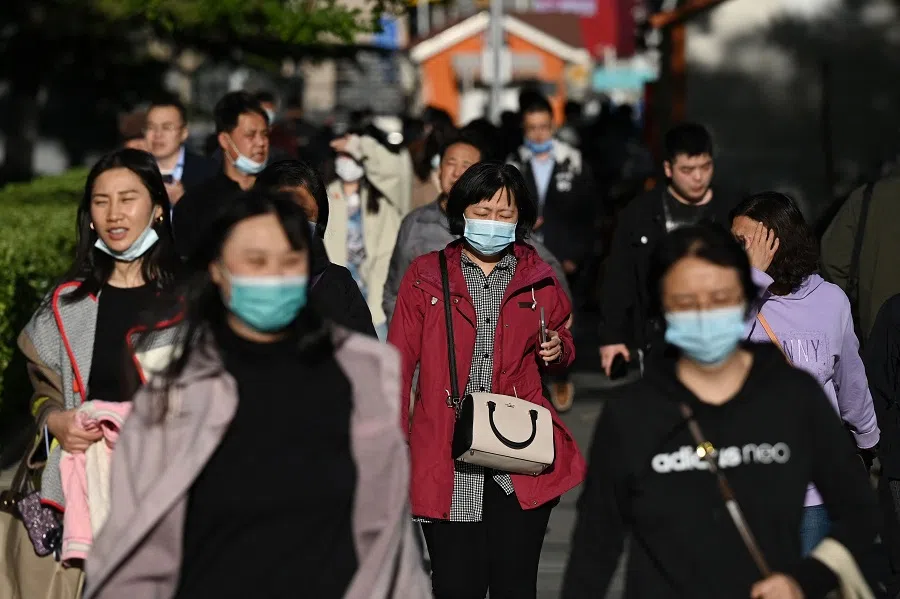
Europe's anger against Lu's comments and China's disavowment of his remarks have also put Lu in a difficult position. After the Chinese embassy in France published its clarification, Bruno Tertrais, deputy director of the Fondation pour la Recherche Stratégique (Foundation for Strategic Research), tweeted sarcastically that the official statement had thrown the ambassador under the bus, meaning that he could be sacrificed. However, if a diplomat's remarks contradict the country's foreign policy, Beijing has no choice but to stop the damage quickly.
This is not the first time that this veteran diplomat has landed himself in the soup for making remarks that crossed the line. In recent years, Chinese diplomacy has reiterated the importance of having the courage and skills to fight (敢于斗争,善于斗争) when dealing with Western countries.
While Lu's attitude represents China's growing courage to fight in the diplomatic arena, it does not naturally mean that one has the skills to do so. There is still a profound lesson that needs to be learnt to reach that level of competence. In particular, when dealing with sensitive topics involving international law and sovereignty, it is still better to err on the side of caution and not spar unnecessarily.
This article was first published in Lianhe Zaobao as "卢沙野的失言让谁尴尬?".





